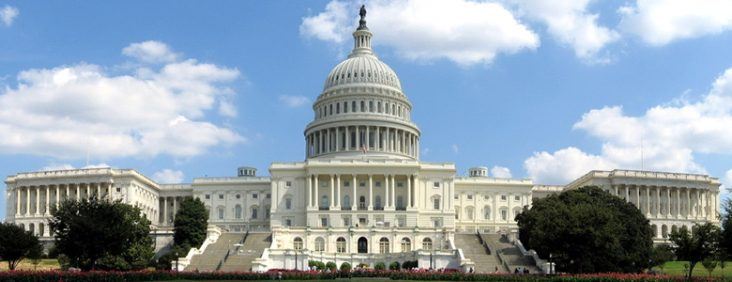U.S. House approves new highway bill, now heads to conference committee
by November 5, 2015 1:55 pm 329 views

A long-term highway bill appears to be headed to conference with all four Arkansas members of the U.S. House of Representatives voting with the majority to approve the bill. The 371-54 vote on HR 22 came Thursday morning (Nov. 5) after debate late Wednesday involving dozens of amendments for the bill.
U.S. Reps. Rick Crawford, R-Jonesboro, French Hill, R-Little Rock, Steve Womack, R-Rogers and Bruce Westerman, R-Hot Springs, voted yes on the bill, which now heads to a conference committee. Hill said the prospect of a long-term bill will provide some definitive ideas as to where funding will go.
Language that survives the conference committee could provide around $380 billion in highway and transit money over the next six years. However, early reports suggested that spending authorization was made for just the first three years of the six-year program. U.S. Transportation Secretary Anthony Foxx has said more than $400 billion is needed during the next six years just prevent existing problems from growing. Earlier this year Foxx, representing the Obama Administration, submitted a six-year, $480 billion highway bill that was eventually rejected by Congress.
Hill said the House bill was a big step toward resolving highway issues.
“Stop-gap, temporary highway bills are never a good solution. The American people deserve certainty from their elected officials that we can provide long-term authorization for planning our crucial infrastructure needs. Up-to-date roads, highways, and bridges are needed for economic development, and today we cleared a major hurdle in delivering that certainty. As this process moves on, I will work to pass a bill that supports needed infrastructure improvements with minimal burden on the hardworking American taxpayers,” Hill said.
Womack said the bill provides teeth to the transportation funding process.
“I am proud to support the passage of the Surface Transportation Reauthorization and Reform Act. This multi-year, paid-for surface transportation reauthorization – which makes meaningful reforms to process, safety, and innovation – provides the long-term certainty that is essential for our nation’s transportation infrastructure,” Womack said.
The bill also includes an amendment approved Wednesday night by the House that will allow for the exemption of agricultural vehicles on the future Interstate 555 in northeast Arkansas. A nearly 40-mile stretch on U.S. 63 in Crittenden, Poinsett and Craighead counties has been under consideration more than two decades to become an interstate highway. There is also a Senate amendment by U.S. Sen. John Boozman, R-Ark. on the issue.
Crawford was also selected to serve as a conferee on the bill.
“For years, Arkansas has sought interstate status for U.S. 63, but has been unable to bear the $30-$50 million expense needed to build an access road for agricultural vehicles across the St. Francis floodway. My amendment will allow for the interstate designation to move forward while at the same time allowing for traditional use of the floodway bridge,” Crawford said. “As a conferee during the reconciliation process, I hope to work quickly with my colleagues towards producing a final version that works for the First District and all of Arkansas.”
The American Trucking Associations’, which had worked to block previous legislation that included new truck weight limit rules, supported the House bill approved Thursday.
“We congratulate Chairman Shuster and Ranking Member DeFazio for leading the passage of a long-term, bipartisan highway bill,” ATA President and CEO Bill Graves said in a statement. “Now we urge House and Senate leaders to come together on a final bill that increases highway investment to send to President Obama this year.”
However, the ATA plans to lobby for removal of some language during the conference committee discussion between House and Senate members.
“Unfortunately, both the House and Senate bills envision a continued prominent role for new Interstate tolls despite their inefficiency and unpopularity, and we hope a final bill resolves that issue by avoiding the expansion of Interstate tolling authority and, preferably, by eliminating existing loopholes,” the ATA noted.
